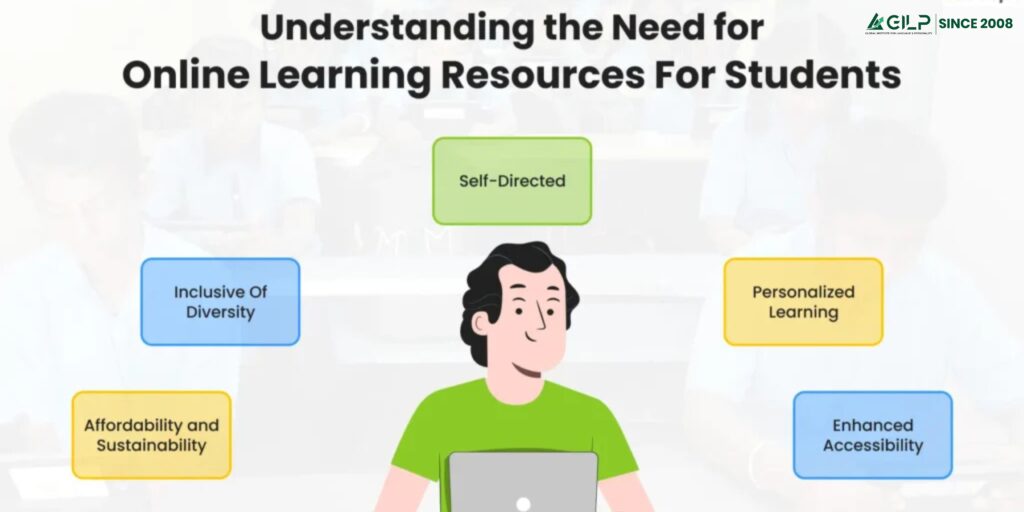.lT..How to Use Online Tools to Improve Your English Speaking
Never before in history has learning English had so immense a plethora of facilities and opportunities as it has today. Online tools for English-speaking-skills development are the most powerful. Whether you are a beginner or just want to perfect your fluency. The Internet has a span of resources to help you practice speaking programs, enhance your pronunciation, and build your confidence. From language learning apps to virtual tutoring sessions to speech recognition software, each tool provides instant feedback and immersive. Learning and offers an innumerable number of self-paced practices. This blog aims to discuss possible ways to utilize online tools to supercharge. Your English speaking abilities and bring your communication to the next level.

1. Language Learning Apps: Effective Online Tools for Speaking Improvement
Language-learning applications have turned out to be relatively popular and convenient means of inculcating skills for speaking in English. These apps incorporate several innovative features enabling learners to speak, build vocabulary, and improve pronunciation in a fun way.
Apps such as Duolingo, Babbel, and HelloTalk have provided exercises for improving pronunciation, sentence construction, and conversational practice. With gamified lessons, users have the opportunity of practicing their English speaking skills by repeating phrases. Simulated dialogues, and other speaking challenges. This progression moves gradually from as basic as vocabulary and grammar to more advanced dialogues. Thus ensuring fluency building along the way.
Practice anytime and anywhere, which is something that these apps can do to a busy learner. This is what most of the apps promise – to use speech recognition technology to evaluate. One’s pronunciation while providing real-time feedback to correct mistakes and improve articulation. This urgent feedback is usually invaluable for learners in polishing their speaking skills, especially since they lack native speaker interaction.
Some apps, like HelloTalk and Tandem, offer an opportunity for learners. To connect with native speakers and practice real-life conversation through after-hours language exposure. In this way, the native speech pattern, slang, and cultural context will train. The learners for a more naturally sounding fluency.
Thus, language learning apps are rightive online tools because they have interactivity, pronunciation practice, and exposure to real-life conversations. That would maximize the speaking lesson really. Therefore, learners will achieve a long stride in becoming confident and fluent English speakers by frequently utilizing the apps.
2. Speech Recognition Software: Online Tools for Accurate Pronunciation
Speech recognition software is probably one of the most effective devices for enhancing pronunciation and speaking accuracy in English. Conversion software is Google Speech, Microsoft Dictate, and Dragon Naturally Speaking advance amongst its applications. Whereby spoken language is converted into text but gives immediate playback regarding pronunciation. Through such software, learners are able to practice speaking and then receive instant correction. Thus making learning sound and fluency a great deal more effective with these programs.
Above the fact that an error in pronunciation may be identified by the software. It can also suggest the correct pronunciation. Such instances will include a case where the subject mispronounces a word. The software highlights the highlighted word or suggests what should be the correct pronunciation. This brings learners closer to precisely pointing out the areas they need improvement. It proves especially useful in giving a chance for learning to be students. Struggling with particular sounds like “th” or vowel contrasts that may not be present in their native languages.
The other important function of speech recognition programs is to assess the flow of speech with pacing, stress, and intonation-naturally. Important parameters of speech-since learners must practice with an appropriate pace. When speaking and not rush nor drag their words so that speech appears more fluid and conversational. By obtaining immediate feedback, students can adjust their pronunciation and rhythm to better match those of native speakers.
In conclusion, it can be safely said that this tool. Serves a great help for learners wishing to learn the skills of pronunciation. Gradually, online usage will rectify mistakes, improve fluency, and empower them for the speaking of English.
3. Language Exchange Platforms: Practicing with Native Speakers Through Online Tools
There are such platforms that serve as online tools to practice speaking in English. With the natives, creating an authentic environment of learning or immersion. Websites and apps such as iTalki, Tandem, Speaky, or HelloTalk help an English. Learner link with a native speaker to converse. In real-time while improving their speech skills in a natural and supporting structure.
To properly maximize the potentials of using these platforms, they need matching individuals. Spanish national may want to put his/her English. Into practice by pairing with a native English speaker, whose involvement will include teaching that partner Spanish in return. This ideal situation allows learners to enjoy conversations with other people. Who can list their mistakes, teach spoken phrases, and expose them to cultural details. That are not available in a traditional classroom setting.
Language exchange platforms provide real-life conversations with native speakers, and this is a tremendous advantage to language learners. These conversations, as a result, help learners gain fluency, get a better understanding of pronunciation, and acquire phrases, idioms, and slang, which are commonly used by native speakers in casual conversations. When native speakers are practiced with regularly, and learners will feel much more comfortable in practicing spontaneous speech and real-life communication.
Furthermore, a number of language exchange platforms have features, such as video or voice calls, messaging, and text corrections. This means practicing speaking English through such platforms becomes engaging and dynamic, allowing learners to interact and get corrections on the spot-an essential part of developing their speaking skills.
language exchange platforms offer wide-ranging opportunities for learners to practice speaking with native speakers. By being in such conversations, learners get the chance to work on their fluency, pronunciation, and confidence while learning real English that is spoken in real life.

4. Online Video and Audio Resources: Learning Through Immersion with Online Tools
Online video-and-audio resources are effective ways of learning an English user because they facilitate immersion in the language. They become important aids in developing one, especially in speaking and listening. From casual dialogue to that of a formal academic lecture, learners get a wealth of experiences and diverse meanings of hearing English in many different accents, tones, and contexts through the use of the Internet streaming sources such as through YouTube, TED Talks, and other special podcasts.
Watching videos or listening to audio in English helps improve comprehension and speaking skills by exposing learners to authentic language use. It includes the visualization of understanding through videos with subtitles or transcripts so that students are inspired to work along with the spoken words and relate them to the written text. Such an exposure is very useful in vocabulary building, pronunciation improvement, and pattern recognition of how words are connected in a natural way when used in speech.
Indeed, shadowing is one of the great advantages that the learners can take from videos and audio resources. With this technique, the learners are able to practice shadowing, which involves repeating what is being said immediately after listening to it. This method can go a long way in enhancing pronunciation and improving the aspects of rhythm, stress, and intonation. As the learners imitate native speakers, they develop an understanding of the flow of sentences, as well as the emotional expression and tone to be used.
In a nutshell, online video and sound materials have created a world that seems to be entirely one’s own for the purposes of speaking and listening. With regular employment of these learning aids, comprehending natural speech patterns and increasing pronunciation skills and confidence during real contact conversations become possible.
5. Virtual Classrooms and Tutoring Services: Online Tools for Structured Speaking Practice
All online resources for improving English speaking skills-a virtual classroom or tutoring service- are important components that learning can take place in a moderated space. Be it a Preply, a Verbling, a VIPKid, or an italki, each connects learners to professional tutors for personal tutoring sessions focusing primarily on practice. All these services offer one-on-one sessions: Hence, students receive individualized feedback, correction, and guidance in real time.
Furthermore, virtual tutoring services often include various learning formats: conversation-based lessons, role-playing situations, or pronunciation drills. These lessons mirror real-life situations, making the environment for speaking practice relevant and practical. Learners can talk about anything from everyday life to business topics, which enhances their confidence and ability to communicate in various situations.
During virtual lessons, tutors are immediate and constructive with their feedback, allowing students to recognize their errors and articulate corrections on the spot. This instantaneous feedback loop fosters accelerated learning and allows students to tackle frequent speaking problems much faster than in self-study.
These online classrooms and tutoring services offer organized, personalized speaking practice to each student-accompanied by a very high level of value in helping them become fluent and confident speakers. This access to all the expert instruction and specific exercises, as well as continual feedback sharpening performance-now lets students make fast progress in English speaking.

6. Online Forums and Communities: Engaging in Conversations with Peers through Online Tools
Demonstrates excellent involvement in the bearings offered to them by showing them online forums and communities. These have been up there to not intimidate students who want to use them for practicing English speaking. Social sites like Reddit, Discord, Facebook Groups, and language exchange forums are considered great online connections for learners around the world who would like to talk with one another, either written or verbally, about learning.
Benefits of online forums and communities – Practice speaking for real conversations outside of institutional pressure rather than learning it in the classroom environment. Such forums also include dedicated threads or groups in which people join in conversations, ask questions, or participate in discussions around language learning. Many of these communities also provide voice chats, video calls, or live events, in some cases allowing people to engage in spoken activity practice in English, therefore, drawing out participants developments into being much more comfortable with conversational flow and spontaneity.
In addition, these forums create a unique space to receive feedback from peers. Learning recording can be shared or learners would ask for suggestions and talk about their challenges on pronunciation or grammar. Peer feedback creates that environment among learners in which they can learn from the successes and failures of their peers to grow in concert.
7. Consistency and Tracking Progress with Online Tools for Speaking Improvement
Consistency and progress tracking are essential for the mastery of any language skill and especially for improving one’s English speaking. Online tools give the learners the structure and support to help them be consistent in their practice and also allow them to track and analyze their progress.
Language improvement is all about consistency. While some tools like language learning apps give daily reminders for speaking practice through structured exercises, these other tools-such as voice training applications or virtual classrooms-such as Google Speech, Speechling, iTalki, and Preply-actually create avenues for revisiting and retaining knowledge. Consistency ensures that learners remember that new vocabulary, practice their pronunciation, and speak with fluency. With these online tools, learners have multiple windows to reach back to English times, practicing even in between lessons.
It is also very essential to track progress, because it shows learners improvements and keeps them motivated. There are a lot of resources that have built-in progress tracking as one of the features, and they can monitor whether the learner reaches milestones in vocabulary acquisition, pronunciation accuracy, fluency, or conversation skills. With such tools, students can see a record of their performance over time, comparing present results with past ones, thus giving them a clear sense of how much they have grown. In conjunction with quizzes, speech assessments, or tutor feedbacks, some of their features will be able to expose areas for improvement and present opportunities for targeted practice.
Thus, with daily practice and a context of measuring progress with online tools, one can hasten achievement toward fluency in speaking English. This makes a systematic way of working to keep the learner focused, motivated, and on track to achieving speaking goals.
Start using online tools today to supercharge your English speaking skills and watch your confidence soar!
Conclusion
To sum up, working on your English speaking skills with online tools really comes down to convenience, efficiency, and engagement to induce some heavy-duty learning. From interactive language apps and voice recognition software to virtual classrooms and language exchanges, these tools open multiple avenues for practice, feedback, and improvement. With regular use of these, you can constantly evaluate your progress, address the areas that need work, and stay motivated throughout the language-learning expedition. Not only will pronunciation, fluency, and conversational skills get their fair share of practice, but the online factor allows doing so whenever convenient. Working these tools into your daily life certainly will speed up your journey of becoming a confident and fluent English speaker.
